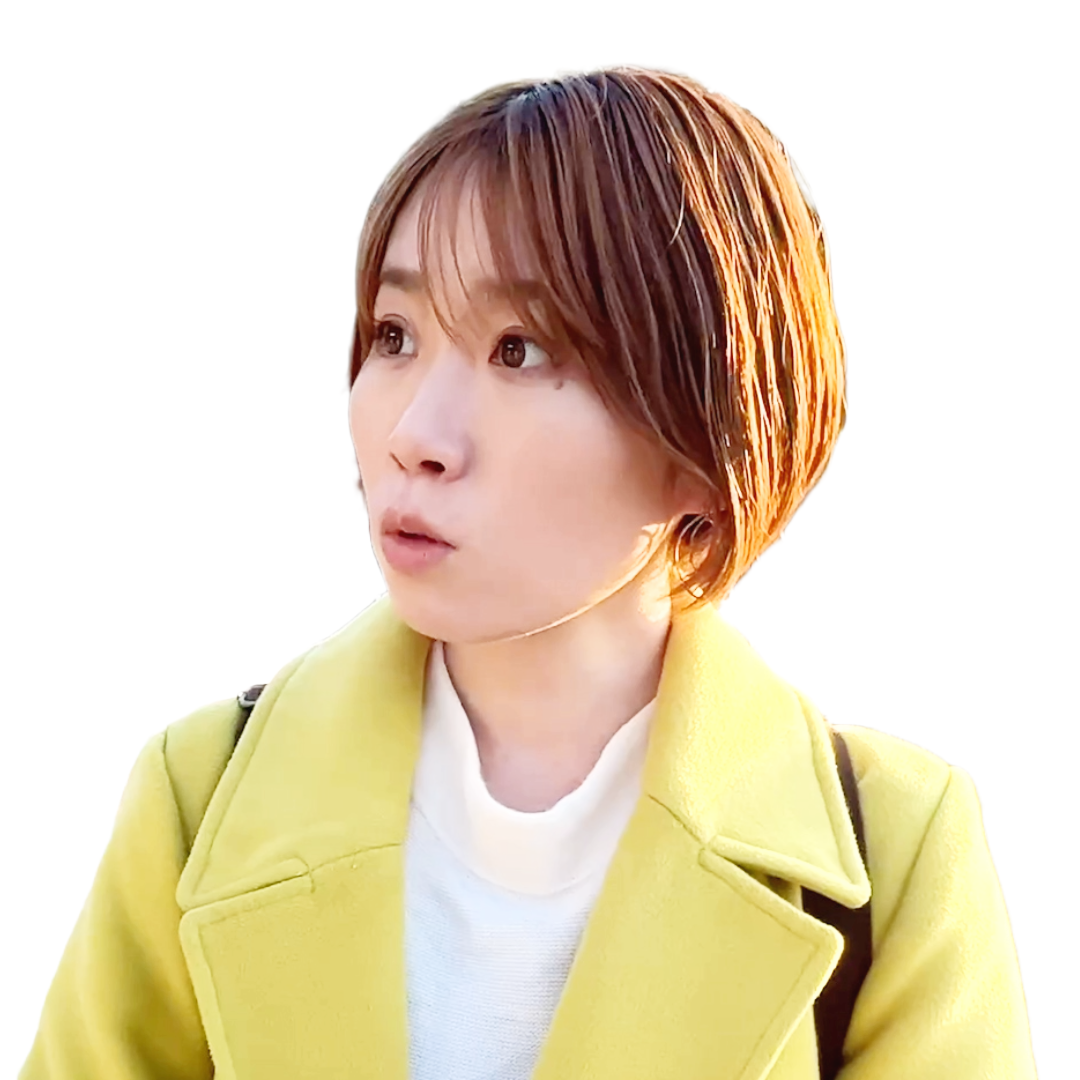
ついたー!
I made it!

うわぁ、すごい。
Wow, amazing.

めぐみは・・まだいないか。
Is Megumi… still not here?
10分後
10 minutes later

電話もでない。
She’s not answering.
20分後
20 minutes later

まだ、来ない! もう!
She’s still not here! Seriously!

おまたせー。
Sorry for the wait!

ちょっと、おそいよ。
Hey, you are late.

ごめん、寝坊しちゃって。
これ食べる?
Sorry, I overslept.
Want some of this?

食べない!
I do not eat!

怒っている?
Are you mad?

怒っている!
Yes, I’m mad!

ごめんなさい。
Sorry.

いや、そんなに怒ってないから。
No, I’m not that mad.

そう! よかった。
じゃあ行こう!
Phew! That’s good. Let’s go then!

あ、そうだ。
ちょっとお手洗いに行っていい?
Can I go wash my hands real quick?

はやく行って!
Hurry up!

ごめん!
Sorry!

いっしょに行く?
Wanna come with?

行かない!
I’m not going!
| つきます | arrive |
| まだ | yet |
| 電話 | phone |
| でます | answer |
| 来ます | come |
| 怒っています | mad/angry |
| 寝坊します | oversleep |
| お手洗い | toilet |
| そんなに | not that much |
How to make ない form
When creating the negative form of a verb, besides changing “〜ます” to “〜ません,” there is another method, which involves transforming the verb into its “ない形, nai-form” form.
“〜ません” is mainly used in formal situations, while the “ない” form is used in casual contexts. Since Yoko and Megumi, the protagonists of this video, are friends, they speak to each other casually.

食べません。
I don’t eat.

食べない。
I don’t eat.
However, if you add “です” after “ない,” it becomes more formal.

食べないです。
I don’t eat.
Just like with the “て form” of verbs, the “ない form” also changes depending on the verb group. Practice pronunciation diligently and get accustomed to it.
Change the “i” sound before “masu” to an “a” sound.
Change “ます” to “ない”
行きます i ki ma su → 行かない i ka na i
| ます 形 | ない 形 |
|---|---|
| 読みます read | 読まない |
| 話します talk | 話さない |
| 書きます write | 書かない |
| 泳ぎます swim | 泳がない |
| 遊びます play | 遊ばない |
| つきます arrive | つかない |
| *会います meet | 会わない |

行かない!
I’m not going!
Change “ます” to “ない”.
食べます ta be ma su → 食べない ta be na i
| ます 形 | ない 形 |
|---|---|
| 起きます wake up | 起きない |
| 寝ます sleep | 寝ない |
| 見ます look | 見ない |
| 覚えます memorize | 覚えない |
| 忘れます forget | 忘れない |

食べない。
I don’t eat.
Memorize it exactly as it is.
| ます 形 | ない 形 |
|---|---|
| 来ます come | 来ない |
| します do | しない |
| (勉強)します study | (勉強)しない |

まだ、来ない!
She’s still not here!
| 朝ごはん | breakfast |
| 電車 | train |
Rearrange the words
Q1: Mikako doesn’t eat breakfast.
Q2: Kota doesn’t ride the train.
1. みかこさんは朝ごはんを食べない。
2. こうたさんは電車に乗らないです。
